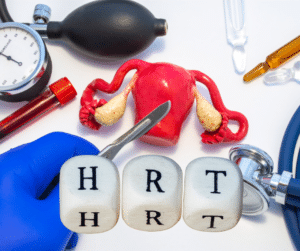Before I go into detail about receiving HRT after a hysterectomy I’ll first discuss hysterectomies in general. Therefore, how they can lead to needing HRT.
When receiving a hysterectomy you’ll be faced with the decision of whether or not to have just your womb removed. In addition, if your cervix and/or ovaries will be removed as well.
Your doctor will be able to guide you towards the best option according to your medical history. Of course, your personal preference.
Here are the differences in each of the different types of hysterectomies.
Hysterectomy: Removing of the Cervix
Women may get their cervix remove to prevent the spreading of cervical cancer. Furthermore, to eliminate the risk of ever developing cervical cancer if it runs in the family.
One of the qualms women have when receiving a hysterectomy is that they’ll be removing a part of their reproductive system. If this is something you’re worried about, please talk to your doctor first to see if you can keep your cervix without any risk.
In addition, some women are also concerned that removing the cervix will disrupt one’s sex life, but there is no evidence to support that claim.
HRT after a hysterectomy is not needed if only the cervix is being removed.

Hysterectomy: Removing the Ovaries
Removal of the ovaries is generally not recommended. Unless there is a high risk of developing a disease such as ovarian cancer. If ovarian or breast cancer run in your family, removal of the ovaries may be recommended. However, to prevent these types of cancer from spreading.
In addition, if you have gone through menopause, or are about to go through it, removal of the ovaries may be recommended as a precaution against developing ovarian cancer.
In most cases your ovaries will be kept in place because they produce key female hormones that can protect against conditions like osteoporosis. You will always have to give explicit consent before having your ovaries removed.
HRT after a hysterectomy will be recommended if your ovaries are removed.
HRT After a Hysterectomy
Removing the ovaries leads to a lack of the hormone estrogen. The immediate decline of estrogen will trigger menopausal symptoms no matter how old you are. Which is a condition known as “surgical menopause”.
Receiving HRT after a hysterectomy also comes with a bit of a trial process. Meaning you will have to try different doses. Moreover, brands of HRT before finding the one that most accurately matches the hormones lost as a result of removing your ovaries.
Hormone Replacement Therapy (HRT) After a Hysterectomy Conclusion:
Even though it may be needed, not everyone is eligible to receive HRT after a hysterectomy. During the consultation your surgeon will ask about existing medical conditions, which will determine whether or not your body can receive HRT.
If it’s determined that you cannot receive HRT after a hysterectomy, your doctor will put you on a treatment that you’ll need to continue with until the usual age of menopause.
Please see this page for more information about hormone replacement therapy.





She is a recognized and award-winning holistic, functional, integrative and anti-aging healthcare practitioner, speaker and author, and has been featured in ABC News, Forbes, WOR Radio and many media outlets to spread the word that you can live younger and healthier at any age.